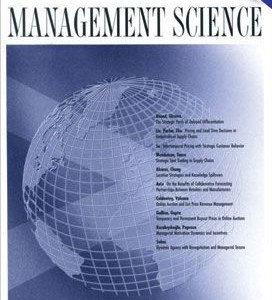
Nosenzo, D., Offerman, T., Sefton, M. and \van der Veen\, A. (2016). Discretionary sanctions and rewards in the repeated inspection game Management Science, 62(2):502--517.
-
Affiliated author
-
Publication year2016
-
JournalManagement Science
We experimentally investigate a repeated 'inspection game' where, in the stage game, an employee can either work or shirk and an employer simultaneously chooses to inspect or not inspect. The unique equilibrium of the stage game is in mixed strategies with positive probabilities of shirking/inspecting while combined payoffs are maximized when the employee works and the employer does not inspect. We examine the effects of allowing the employer discretion to sanction or reward the employee after observing stage game payoffs. When employers have limited discretion, and can only apply sanctions and/or rewards following an inspection, we find that both instruments are equally effective in reducing shirking and increasing joint earnings. When employers have discretion to reward and/or sanction independently of whether they inspect, we find that rewards are more effective than sanctions. In treatments where employers can combine sanctions and rewards, employers rely mainly on rewards, and outcomes closely resemble those of treatments where only rewards are possible.